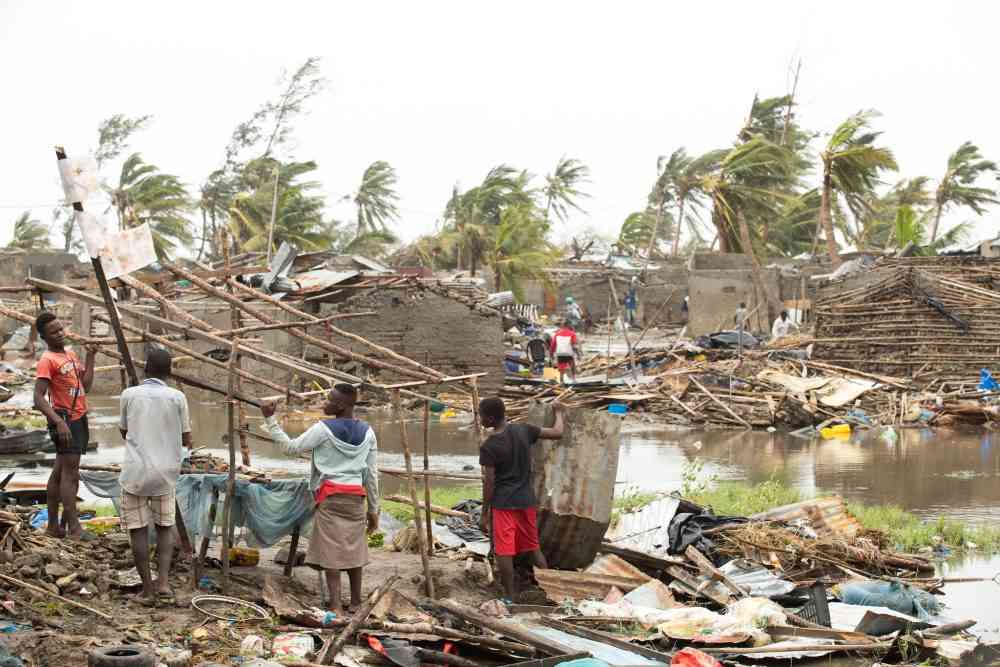
Guest Column: Dylan Chawawa
Beijing’s multibillion dollar Belt and Road Initiative (BRI) has been called a Chinese Marshall Plan, a State-backed campaign for global dominance, a stimulus package for a slowing economy, and a massive marketing campaign for something that was already happening — Chinese investment around the world.
China’s initiative is a 21st Century Silk Road, made up of a “belt” of overland corridors and a maritime “road” of shipping lanes.
The draft of the Chinese Marshall Plan, suggested the cost to be more than one trillion dollars (£760b).
The BRI is geared towards encouraging greater policy co-ordination, infrastructure connectivity and trade co-operation.
Since the spark and spread of the liberation struggle in the then Rhodesia, a friendly relationship between Zimbabwe and China was taken to higher extremes. After the liberation struggle, Zimbabwe strengthened diplomatic ties with China.
These relations were solidified through political and social exchanges between the two countries.
It is fundamental to note that post the land reform programme in Zimbabwe, hostilities between the country and Western countries emerged.
- Chamisa under fire over US$120K donation
- Mavhunga puts DeMbare into Chibuku quarterfinals
- Pension funds bet on Cabora Bassa oilfields
- Councils defy govt fire tender directive
Keep Reading
Economic sanctions were imposed by the United States of America and the European Union.
Zimbabwe saw opportunities from its armed struggle helper and countries in the eastern bloc, hence the Look East Policy was formulated.
China became the largest injector of foreign direct investment (FDI) into Zimbabwe since 2003 post the new foreign policy-making.
Zimbabwe became one of Africa’s largest recipients of Chinese FDI.
The wave of China’s BRI collided with Zimbabwe’s desperate foreign policy, ties were furthered, Zimbabwe became a natural partner of China and the effects on Zimbabwe started to manifest.
With support of the BRI, Zimbabwe managed to gain access to international markets.
The economic sanctions imposed by the Western countries meant that Zimbabwe could not trade with the bloc.
It is against this backdrop that China’s Belt and Road Initiative came as an antidote to the problem. Now Zimbabwe exports minerals, tobacco and other agricultural products to China.
The fact that China is the largest tobacco market in the world, with one-third of the world’s smokers consuming 40% of global cigarette production makes BRI a blessing to Zimbabwe.
Economic relations between the two existed but the BRI came as a backed campaign to further what was already happening.
According to South African Institute of International Affairs, Chinese companies invested US$1,3 billion during the period of 2009 to 2013 into the economy of Zimbabwe.
In 2016, China accounted for the largest share of FDI to Zimbabwe — 74% BRI also means that Chinese firms are engaging in construction work across the globe on an unparalleled scale.
To date, Chinese companies have secured more than US$400 billion in construction contracts along the Belt and Road initiative.
Infrastructural development has become the cornerstone of BRI with the Asian giant investing billions in infrastructural projects in many domains of the Zimbabwean economy.
Zimbabwe is benefiting immensely from the wave through many construction deals, for example a 673,43 million yuan grant from the Chinese government for the construction of a new Parliament Building which is currently underway in the northwest of Harare.
The expansion of the Robert Gabriel Mugabe International Airport is another major work of China’s hand.
Exim bank also released a US$150 million loan for upgrading Victoria Falls International Airport in 2018 and now has the capacity to accommodate 1,5 million passengers annually and the runway can now accommodate long haul aircraft.
A Chinese company Sinohydro, with the support of the Chinese government in 2018 completed a power boost project at Kariba South Hydro Power Station where it installed two generators with a capacity of 150 megawatts (MW) each.
Synohydro is also refurbishing Hwange Thermal Station to give it a boost of nearly 700MW at a cost of US$1,5 billion.
The objective of the BRI which is to advance the quality of lives can be noted by the aid given by Synohydro to Harare City Council in upgrading water and sewerage systems and a
US$144 million-loan released by China’s Exim Bank to upgrade water works at Morton Jaffray.
However, China’s dominance in the construction sector of Zimbabwe comes at the expense of local contractors and also critics worry it could use “debt-trap diplomacy” to extract strategic concessions.
For example in 2011, China wrote off an undisclosed debt owed by Tajikistan in exchange for 1 588sq km of the disputed territory.
China’s BRI makes some realist disciples worry because expanded Chinese commercial presence around the world will eventually lead to expanded military presence.
Analysts worry that infrastructure being built can be for dual-use for commercial and military purposes.
Chinese mining firms exploit gold, diamonds and chrome and have been highly involved in the externalisation of funds from the country. China’s firms and individuals topped the list of illicit financial outflows. China’s penetration in the country’s agricultural system has negatively affected the local small-scale farmers because of competition on local markets.
The increased population of the Chinese in Zimbabwe shows that the initiative is also motivated by factors other than trade such as China’s need to combat excess capacity at home.
Dylan Chawawa is a Master of Science in International Trade and Diplomacy student at the University of Zimbabwe. He writes here in his personal capacity.











